April 3, 2017 •
See us in person!
We’ve got a busy April planned. If you are attending any of these events, please say hello! April 7 PACS, Politics, & Grassroots Conference, Washington, DC April 11 WGR Toastmasters, Washington, DC April 11 WGR Leadership Program Final Session, Washington, DC April 13 […]
![]() We’ve got a busy April planned. If you are attending any of these events, please say hello!
We’ve got a busy April planned. If you are attending any of these events, please say hello!
April 7 PACS, Politics, & Grassroots Conference, Washington, DC
April 11 WGR Toastmasters, Washington, DC
April 11 WGR Leadership Program Final Session, Washington, DC
April 13 Montgomery County Council – African American Affairs Advisory Group Meeting, Silver Spring, Maryland
April 21 You-Too Social Media Conference, Kent, Ohio
April 25-26 Public Affairs Council Spring Executive Meeting, Washington, DC
April 25 Public Affairs Council Annual Member Dinner, Washington, DC
April 25 WGR Toastmasters, Washington, DC
April 26-27 Campaign Tech East Conference 2017, Washington, DC
Federal Regulation of Lobbying Act One of the first formal federal regulations of lobbying in the United States was the Federal Regulation of Lobbying Act that created a registration and financial disclosure system for lobbyists in 1946. The Federal Regulation […]
![]()
Federal Regulation of Lobbying Act
One of the first formal federal regulations of lobbying in the United States was the Federal Regulation of Lobbying Act that created a registration and financial disclosure system for lobbyists in 1946. The Federal Regulation of Lobbying Act required lobbyists, anyone whose “principal purpose” was influencing the passage or defeat of a piece of legislation, to register with the Clerk of the House and Secretary of the Senate. The act also required quarterly financial reports to be filed as well. The act was considered ineffective because of poor drafting.
The act was diminished in 1954 when it was challenged in the U.S. Supreme Court case United States v. Harriss. The Court’s ruling narrowed the Act to only apply to “paid lobbyists” that “directly communicate” with Congress on “pending legislation.”
The United States v. Harriss ruling discounted the power and need for disclosure of those who lobby on general issues rather than a specific piece of legislation by not requiring them to disclose their efforts. The Supreme Court ruling also only required disclosure of in person meetings.
Lobbying Disclosure Act of 1995
Another effort was made to regulate lobbying with the Lobbying Disclosure Act of 1995, following a scandal surrounding legislators lobbied by the Wendtel Corporation. The company failed to disclose its lobbying efforts and was bribing policy makers to win government contracts. This scandal motivated Congress to repeal the 1946 act, that had been basically untouched since its dismantling in the Supreme Court and original poor drafting.
In an attempt to make compliance of the law clearer, the new statute redefined lobbying and other related terms. A lobbyist was now considered anyone who is paid by another to make ‘‘lobbying contacts,’’ other than an individual whose ‘‘lobbying activities’’ constitute less than twenty percent of the time spent on providing services to a particular client over a six-month period. If a paid representative of an organization spent less than $22,500 on lobbying within the six months of the reporting period, then the employee did not need to register as a lobbyist under the Lobbying Disclosure Act. This new, more intense regulation required a lobbyist to register with the Secretary of the Senate and the Clerk of the House of Representatives within 45 days of their first lobbying contact on behalf of an organization. The 1995 lobbying regulation was much more stringent and clear than the 1946 act that had left a lot of loopholes.
Honest Leadership and Open Government Act of 2007
The Lobbying Disclosure Act was modified by the Honest Leadership and Open Government Act on September 14, 2007. This act furthered public disclosure requirements for lobbyists and placed more restrictions on the gifts members of Congress and staff members could accept. This law also extended the revolving door period for senior staffers of a member from lobbying them for two years. The 1995 act had a one-year restriction.
Sources:
http://www.opensecrets.org/resources/learn/lobbying_timeline.php
https://definitions.uslegal.com/f/federal-regulation-of-lobbying-act-of-1946/
https://ballotpedia.org/Lobbying_Disclosure_Act_of_1995
https://www.govtrack.us/congress/bills/110/s1/summary
https://www.govtrack.us/congress/bills/110/s1/summary#libraryofcongress
 Washington D.C.-based Gabrielle Woodard is a student from Kent State University (KSU). She is writing articles looking at the history of lobbying and political contribution, the emergence of the compliance laws and regulations governing these activities, and other interesting topics. Look for these articles to appear every few weeks. We look forward to her research and insightful writing.
Washington D.C.-based Gabrielle Woodard is a student from Kent State University (KSU). She is writing articles looking at the history of lobbying and political contribution, the emergence of the compliance laws and regulations governing these activities, and other interesting topics. Look for these articles to appear every few weeks. We look forward to her research and insightful writing.
Gabrielle is a senior public relations major at KSU with a minor in political science. She served as president of Kent State’s chapter of the Public Relations Student Society of America during 2015-2016. Gabrielle spent the spring of 2015 participating in the Washington Program in National Issues and interned in the Office of Legislative Affairs within the Federal Communications Commission. She then spent her last two summers in Baltimore as a communications intern for Northrop Grumman, an international defense contractor. Gabrielle is spending this semester in Washington, D.C. and pursuing a career in government relations.
March 28, 2017 •
Kentucky’s Governor Signs Campaign Finance Bill
Gov. Matt Bevin approved changes to a campaign finance law yesterday, March 27, 2017. Senate Bill 75 doubles current contribution limits for individuals giving to candidates, state executive committees, and caucus campaign committees. The limit for individuals giving to PACs […]
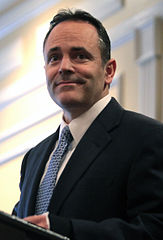 Gov. Matt Bevin approved changes to a campaign finance law yesterday, March 27, 2017.
Gov. Matt Bevin approved changes to a campaign finance law yesterday, March 27, 2017.
Senate Bill 75 doubles current contribution limits for individuals giving to candidates, state executive committees, and caucus campaign committees. The limit for individuals giving to PACs also increases from $1,500 to $2,000.
Contributions to candidates and PACs will be indexed for inflation every odd-numbered year based on the Consumer Price Index. The bill also creates a single reporting threshold of $3,000 for campaign finance reports.
The bill is effective June 28, 2017, or 90 days from adjournment sine die of the regular session of the Legislature.
March 28, 2017 •
South Dakota Adjourns Legislative Session
On March 27, South Dakota lawmakers met for the final day of the 2017 legislative session to consider five bills Gov. Dennis Daugaard vetoed. Two-thirds support is required to overturn a gubernatorial veto and lawmakers failed to raise enough support […]
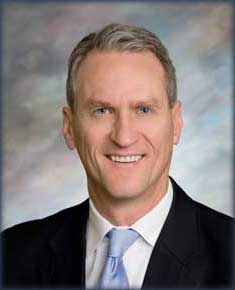 On March 27, South Dakota lawmakers met for the final day of the 2017 legislative session to consider five bills Gov. Dennis Daugaard vetoed.
On March 27, South Dakota lawmakers met for the final day of the 2017 legislative session to consider five bills Gov. Dennis Daugaard vetoed.
Two-thirds support is required to overturn a gubernatorial veto and lawmakers failed to raise enough support to override any of the vetoes up for consideration.
The next legislative session is set to convene January 9, 2018.
March 14, 2017 •
Tuesday’s Government Relations and Ethics News
Lobbying “Would-Be Trump Appointees Say ‘No Thanks’ Due to Lobbying Ban” by Ben Brody, Shannon Pettypiece, and Bill Allison for Bloomberg.com Oregon: “Gov. Brown Reverses Course, Says Former Lawmaker Will Not Lobby Legislators” by Saul Hubbard for The Register-Guard Campaign […]
 Lobbying
Lobbying
“Would-Be Trump Appointees Say ‘No Thanks’ Due to Lobbying Ban” by Ben Brody, Shannon Pettypiece, and Bill Allison for Bloomberg.com
Oregon: “Gov. Brown Reverses Course, Says Former Lawmaker Will Not Lobby Legislators” by Saul Hubbard for The Register-Guard
Campaign Finance
“FEC Earning Congressional Attention – for the Wrong Reasons” by Dave Levinthal for Center for Public Integrity
Ethics
Florida: “Corrupt Opa-locka Official Was a Prized Witness. He Was Rewarded with No Prison Time.” by Jay Weaver for Miami Herald
New Mexico: “Senate Yanks Real Estate Bill; Lawmaker Says Pay-to-Play Maneuver Exposed” by Andrew Oxford (Santa Fe New Mexican) for New Mexico Political Report
New York: “Preet Bharara Shunned Politics. His End Was Tinged by Them.” by Benjamin Weiser, Ben Protess, Matthew Goldstein, and William Rashbaum for New York Times
Utah: “Shurtleff Sues State for at Least $1.1M, Alleges Utah A.G. Sean Reyes Interfered in His Case” by Jennifer Dobner for Salt Lake Tribune
Elections
California: “Seeing Red: Membership triples for the Democratic Socialists of America” by Matt Pearce for Los Angeles Times
Legislative Issues
Minnesota: “Lawmakers Clash Over Ethics of Real ID Letter to the Editor” by Don Davis (Forum News Service) for St. Paul Pioneer Press
Redistricting
Texas: “Texas Congressional Maps Are Struck Down for Discrimination” by Manny Fernandez for New York Times
March 6, 2017 •
Monday’s Government Relations and Ethics News
Lobbying California: “California Lawmakers Report Accepting $518,000 in Gifts, Including Travel and Expensive Meals” by Patrick McGreevy, Melanie Mason, and Chris Megerian for Los Angeles Times Campaign Finance Massachusetts: “Boston Law Firm Could Be Charged on Donations” by Andea Estes […]
 Lobbying
Lobbying
California: “California Lawmakers Report Accepting $518,000 in Gifts, Including Travel and Expensive Meals” by Patrick McGreevy, Melanie Mason, and Chris Megerian for Los Angeles Times
Campaign Finance
Massachusetts: “Boston Law Firm Could Be Charged on Donations” by Andea Estes and Viveca Novak for Boston Globe
Washington: “Ferguson Delivers the Laundry Bill: Grocery Manufacturers told to pay $1.1 million” by Joel Connoly for Seattle Post-Intelligencer
Ethics
“New EPA Head Told Congress He Never Used Personal Email for Government Business. But It Turns Out He Did.” by Steven Mufson for Washington Post
“Majority Rule Means the Power to Stop, Not Just Start, an Investigation” by Carl Hulse for New York Times
“Kushner and Flynn Met with Russian Envoy in December, White House Says” by Michael Schmidt, Matthew Rosenberg, and Matt Apuzzo for New York Times
Arkansas: “Ex-Arkansas Senator Indicted by U.S.; 2 Others Accused in Kickbacks Case” by Doug Thompson for Arkansas Online
North Carolina: “Court Ruling Throws Status of Ethics, Elections Panels into Doubt” by Laura Leslie and Mark Binker for WRAL
Utah: “Jury Acquits John Swallow of All Charges” by Dennis Romboy and McKenzie Romero for Deseret News
March 3, 2017 •
See Us in Person!
Here is our March calendar. If you are attending any of these events, please say hello! March 6-9 PAC National PAC Conference, Miami Beach, Florida March 7 NCSL Foundation Lunch, Washington DC March 7 Women in Government Relations Leadership Program […]
 Here is our March calendar. If you are attending any of these events, please say hello!
Here is our March calendar. If you are attending any of these events, please say hello!
March 6-9 PAC National PAC Conference, Miami Beach, Florida
March 7 NCSL Foundation Lunch, Washington DC
March 7 Women in Government Relations Leadership Program Session #3, Washington, DC
March 9 Montgomery County Council – African American Affairs Advisory Group Meeting, Silver Spring, Maryland
March 12-14 NASPO Exchange – How to Market to State Governments, St. Louis, Missouri
March 14 WGR Toastmasters, Washington, DC
March 23 NCSL Foundation and SGAC Annual Roundtable, Washington, DC
March 23-25 American Copy Editors Society National Conference, St. Petersburg, Florida
March 28 WGR Toastmasters, Washington, DC
March 29-31 SGAC National Summit, New Orleans, Louisiana
February 22, 2017 •
Special Election for Michigan’s First House District Called
State Rep. Brian Banks resigned as part of a plea deal related to charges involving fraudulent pay stubs. To fill the vacancy, Gov. Rick Snyder announced a special election to fill the First House District seat. The special primary will […]
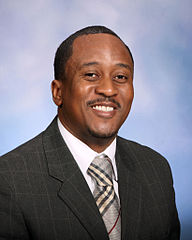 State Rep. Brian Banks resigned as part of a plea deal related to charges involving fraudulent pay stubs.
State Rep. Brian Banks resigned as part of a plea deal related to charges involving fraudulent pay stubs.
To fill the vacancy, Gov. Rick Snyder announced a special election to fill the First House District seat.
The special primary will be held on August 8, 2017, and the special general election will be held on November 7, 2017.
The special election coincides with the regular election to save taxpayers money.
February 22, 2017 •
Stories on the Business of Compliance…A Brief History of Lobbying and Lobbyists
With this issue of LobbyComply, State and Federal Communications would like to introduce a new guest columnist, Washington D.C.-based Gabrielle Woodard, a student from Kent State University (KSU). She will be writing articles looking at the history of lobbying and […]
 With this issue of LobbyComply, State and Federal Communications would like to introduce a new guest columnist, Washington D.C.-based Gabrielle Woodard, a student from Kent State University (KSU). She will be writing articles looking at the history of lobbying and political contribution, the emergence of the compliance laws and regulations governing these activities, and other interesting topics. Look for these articles to appear every few weeks. We look forward to her research and insightful writing.
With this issue of LobbyComply, State and Federal Communications would like to introduce a new guest columnist, Washington D.C.-based Gabrielle Woodard, a student from Kent State University (KSU). She will be writing articles looking at the history of lobbying and political contribution, the emergence of the compliance laws and regulations governing these activities, and other interesting topics. Look for these articles to appear every few weeks. We look forward to her research and insightful writing.
Gabrielle is a senior public relations major at KSU with a minor in political science. She served as president of Kent State’s chapter of the Public Relations Student Society of America during 2015-2016. Gabrielle spent the spring of 2015 participating in the Washington Program in National Issues and interned in the Office of Legislative Affairs within the Federal Communications Commission. She then spent her last two summers in Baltimore as a communications intern for Northrop Grumman, an international defense contractor. Gabrielle is spending this semester in Washington, D.C. and pursuing a career in government relations.
It is believed that lobbying began in the 1640s when political discussions and bargaining were held in the lobbies of the chambers of the British Parliament. The term “lobbyist” came from “lobby member” (who worked in a lobby where public officials were meeting.) The term “Lobbying” was first mentioned in print.
The term lobbyist was first used in 1831 in a reference to Ohio politics. The term quickly was adopted to label anyone who discussed issues with lawmakers based on special interest. President Ulysses S. Grant (serving from 1869-1877), who often visited Washington, D.C.’s Willard Hotel to smoke and engage in deals, made further use of the word “lobbyists” complaining they were there asking for legislative favors.
The first recorded person in the United States lobbying was William Hull, who was seeking additional compensation for the Veterans of the Continental Army.
Gifting to lawmakers began in the 1850s when Samuel Colt, the gunmaker, gifted guns to legislative leaders and their families, including a firearm to a congressman’s 12-year-old son.
Sources: The Center for Responsive Politics; RedState, WELOVEDEC; Bloomberg; and The Christian Science Monitor.
NEXT ARTICLE: The origins of lobbying disclosure laws.
February 14, 2017 •
Vermont Governor’s Staffers Urged to Avoid Sharing a Pint with Lawmakers, Lobbyists
Gov. Phil Scott issued an informal directive to staff and administrative personnel to stay clear of legislators and lobbyists in social situations. The governor is taking aim at the after-hours restaurant and bar scene in Montpelier where staff, lawmakers, and […]
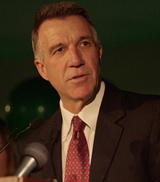 Gov. Phil Scott issued an informal directive to staff and administrative personnel to stay clear of legislators and lobbyists in social situations.
Gov. Phil Scott issued an informal directive to staff and administrative personnel to stay clear of legislators and lobbyists in social situations.
The governor is taking aim at the after-hours restaurant and bar scene in Montpelier where staff, lawmakers, and lobbyists are typically seen commingling.
Those in favor of the governor’s directive welcome the crackdown, while others believe forbidden fraternization is impossible to avoid given the small-town nature of the state capital.
Others are concerned the rule will hurt business owners who rely on these social outings for revenue.
February 13, 2017 •
Sessions Confirmed as U.S. Attorney General, Controversy Surrounds Bentley’s Replacement
U.S. Sen. Jeff Sessions was confirmed as President Trump’s attorney general on February 8, 2017. To fill the Senate vacancy, Gov. Robert Bentley has appointed state Attorney General Luther Strange to succeed Sessions. Bentley’s appointee will serve the U.S. Senate […]
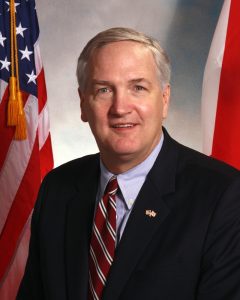 U.S. Sen. Jeff Sessions was confirmed as President Trump’s attorney general on February 8, 2017.
U.S. Sen. Jeff Sessions was confirmed as President Trump’s attorney general on February 8, 2017.
To fill the Senate vacancy, Gov. Robert Bentley has appointed state Attorney General Luther Strange to succeed Sessions. Bentley’s appointee will serve the U.S. Senate with 22 months of incumbency until the next general election.
Some controversy surrounds Bentley’s appointment; state Auditor Jim Ziegler filed a written request with Bentley opposing his decision to appoint a replacement and hold off with special elections until November 2018.
Ziegler cited Alabama code stating a special election could only be delayed until the next regular election if the senate vacancy occurred within four months of the next regular election.
Photo of Senator Luther Strange from the State of Alabama website.
January 30, 2017 •
Monday Government Relations and Ethics News
Campaign Finance Texas: “Under New Reality, Austin Council Members Can Raise Funds Year-Round” by Nolan Hicks for Austin American-Statesman Ethics “Report Cites Growing Corruption, Sees Link with Rising Populism” by Andrea Shalal for Reuters “Felony Charges for Journalists Arrested at […]
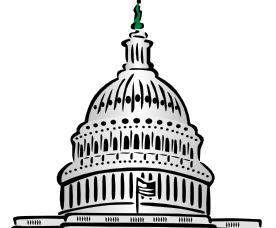 Campaign Finance
Campaign Finance
Texas: “Under New Reality, Austin Council Members Can Raise Funds Year-Round” by Nolan Hicks for Austin American-Statesman
Ethics
“Report Cites Growing Corruption, Sees Link with Rising Populism” by Andrea Shalal for Reuters
“Felony Charges for Journalists Arrested at Inauguration Protests Raise Fears for Press Freedom” by Jonah Engel Bromwich for New York Times
“At Trump’s Mar-a-Lago, the Price for Joining the ‘Winter White House’ Has Doubled” by Drew Harwell for Washington Post
Kentucky: “Consultant Admits to Longmeyer Bribery Scheme” by Tom Loftus for Louisville Courier-Journal
West Virginia: “Armstead to Address Ethics Request After Session” by Phil Kabler for Charleston Gazette
Legislative Issues
“Trump’s Flashy Executive Actions Could Run Aground” by Isaac Arnsdorf, Josh Dawsey, and Seung Min Kim for Politico
January 27, 2017 •
Special Election Dates Set for California’s 34th Congressional District
Gov. Jerry Brown announced special election dates to replace 34th Congressional District Rep. Xavier Becerra’s vacant seat after he was appointed to be the attorney general of California. The primary election is set for April 4, 2017. If no candidate […]
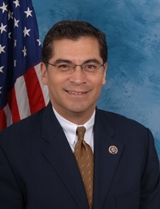 Gov. Jerry Brown announced special election dates to replace 34th Congressional District Rep. Xavier Becerra’s vacant seat after he was appointed to be the attorney general of California.
Gov. Jerry Brown announced special election dates to replace 34th Congressional District Rep. Xavier Becerra’s vacant seat after he was appointed to be the attorney general of California.
The primary election is set for April 4, 2017. If no candidate receives more than 50% of the vote, a general election will be held June 6, 2017.
The race to fill the vacancy will be crowded, with 18 candidates already publicly announcing their intent to run for the position.
January 27, 2017 •
News You Can Use Digest – January 27, 2017
National: Angry Democrats Study the Tea Party’s Playbook New York Times – Jonathan Martin | Published: 1/23/2017 Eight years after Republicans united after a stinging electoral defeat to oppose President Barack Obama, Democrats are channeling an even deeper anxiety over President Trump into […]

National:
Angry Democrats Study the Tea Party’s Playbook
New York Times – Jonathan Martin | Published: 1/23/2017
Eight years after Republicans united after a stinging electoral defeat to oppose President Barack Obama, Democrats are channeling an even deeper anxiety over President Trump into a newfound burst of organizing. Party leaders, eyeing the recent huge protests and growing worries over the promised repeal of the Affordable Care Act, are hoping to recreate the mass movement that sprang up in 2009 and swept Republicans to power in the House and in governor’s races across the country – a tea party equivalent from the left.
Report Cites Growing Corruption, Sees Link with Rising Populism
Reuters – Andrea Shalal | Published: 1/25/2017
Those who turn to populist politicians that promise to upset the status quo and end corruption may only be feeding the problem, a watchdog group warned. Transparency International said in its annual Corruption Perceptions Index for 2016 that in countries with populist or autocratic leaders, “instead of tackling crony capitalism, those leaders usually install even worse forms of corrupt systems.”
Federal:
At Trump’s Mar-a-Lago, the Price for Joining the ‘Winter White House’ Has Doubled
Washington Post – Drew Harwell | Published: 1/25/2017
Mar-a-Lago, the Palm Beach resort owned by the Trump Organization, doubled its new-member fee to $200,000 following the election of Donald Trump as president. Mar-a-Lago has assumed a prized role in Trump’spresidency, rivaling Trump Tower as a focal point of his lifestyle and ambitions. The price jump was slammed by watchdogs, who have criticized Trump’ lack of separation between his private finances and public power. Asked if having Trump in the White House has meant greater interest in outsiders joining the club – including people who might want access to the president – Bernd Lembcke, the managing director of the club, said, “t enhances it.”
Companies Drafting Emergency Plans for Trump Tweets
The Hill – Megan Wilson and Melanie Zanona | Published: 1/19/2017
President Donald Trump has used social media to criticize American businesses, often for off-shoring jobs or manufacturing facilities, and many expect him to keep up the broadsides in the Oval Office. Being attacked by Trump is not only bad publicity but also it can also cause a sudden drop in a company’s stock price. Businesses that have yet to tangle with Trump are fearful they might be next, and have turned to consultants and lobbyists in Washington, D.C. to prepare for the possibility.
Lawmakers Admonish Ethics Official Over Tweets About Trump
Business Insider – Matthew Daley (Associated Press) | Published: 1/23/2017
Lawmakers from both parties admonished a federal ethics official who sent a series of tweets commenting on President Donald Trump’s potential conflicts-of-interest. Members of the House Oversight and Government Reform Committee said the tweets by Walter Shaub Jr., director of the Office of Government Ethics (OGE), were inappropriate and could compromise the agency’s objectivity. Committee Chairperson Jason Chaffetz called Shaub’s comments “highly unethical” and summoned him to a closed-door meeting. Chaffetz and committee Democrats also met with Shaub for more than an hour, an unusual meeting prompted by Republicans’ frustration with the ethics office and its operations, rather than Trump.
Liberal Watchdog Group Sues Trump, Alleging He Violated Constitutional Ban
Washington Post – David Fahrenthold and Jonathan O’Connell | Published: 1/23/2017
To fight what it called a “grave threat” to the country, a watchdog group filed a lawsuit alleging President Donald Trump is violating the Constitution by allowing his business to accept payments from foreign governments. The lawsuit claims Trump is violating a clause in the Constitution that prohibits him from receiving money from diplomats for stays at his hotels or foreign governments for leases of office space in his buildings. The language in the clause is disputed by legal experts, and some think the suit will fail, but it signaled the start of a legal assault by Trump critics on what they see as unprecedented conflicts between his business and the presidency.
Trump’s Flashy Executive Actions Could Run Aground
Politico – Isaac Arnsdorf, Josh Dawsey, and Seung Min Kim | Published: 1/25/2017
The breakneck pace of President Donald Trump’s executive orders might please his supporters, but critics are questioning whether the documents are being rushed through without the necessary review from agency experts and lawmakers who will bear the burden of actually carrying them out. People familiar with Trump’s planning say he wanted daily events to show supporters he would follow through on his campaign agenda, but the process is playing out chaotically. Inside the West Wing, it is almost impossible for some aides to know what is in the executive orders, staffers say. They have been written by Stephen Miller, the senior adviser for policy, and Steve Bannon, Trump’s chief strategist, according to people familiar with the matter. By contrast, the Obama White House ran executive orders through a painstaking process of soliciting feedback from agencies and briefing lawmakers.
We Rely on the Government for Lots of Data. What Happens to That in the Era of ‘Alternative Facts’?
Washington Post – Mark Berman | Published: 1/23/2017
For wary journalists, it seemed only a matter of time before Donald Trump’s presidency would lead to a standoff between his administration and the news media. On the first weekend of the administration, Trump declared himself in “a running war with the media” and the president’s press secretary, Sean Spicer, used his first appearance on the White House podium to deliver a fiery jeremiad against the press. Worse, many journalists said, were the falsehoods that sprang from the lips of both Trump and Spicer. False statements, lies, and evasions are not unique to any one politician or political operative, nor are they the province solely of those who work in politics. But they take on an unmistakably different tenor when delivered with the imprimatur of the federal government, something that remains true even given the times government agencies and officials have been dishonest with the American people.
From the States and Municipalities:
Alaska – As Clock Ticked Toward Session, Alaska Lawmakers Turned to Lobbyists for Cash
Alaska Dispatch News – Nathaniel Herz | Published: 1/22/2017
While state law prohibits Alaska lawmakers from collecting campaign money during the legislative session, fundraisers held on the eve of the session have long been a tradition in Juneau. Lobbyists are banned from donating directly to legislative candidates, except those seeking to represent the lobbyist’s own House or Senate district. But they can give thousands of dollars at the pre-session events, which technically raise money for party committees, not lawmakers’ campaigns, though the parties often distribute cash to the campaigns of individual legislators.
Colorado – Colorado Ethics Commission Tells Aurora Councilwoman to Follow State Ethics Rules Because of Job
Denver Post – Jon Murray | Published: 1/23/2017
The Colorado Independent Ethics Commission said a state employee who also serves as an Aurora City Council member should follow Amendment 41 rather than her city’s less-stringent gift rules. Councilperson Angela Lawson works by day as the lobbyist program manager in the secretary of state’s office. She has been waiting more than a year for an advisory opinion following her election in November 2015. The request was delayed after the commission decided first to sort out how to approach home-rule cities that have their own ethics codes and do not follow the state’s Amendment 41, passed by voters in 2006. The ethics panel issued a recent position statement on the issue sparking outcry from the Colorado Municipal League and local government attorneys.
Florida – Lee Clerk Wants Audit of County Lobby Logs
The News-Press – Patricia Borns | Published: 1/24/2017
Clerk of Court Linda Doggett plans to audit Lee County commissioners’ logs to find out if they and their staff are being transparent about their conversations with lobbyists. A media investigation of Commissioner Larry Kiker’s lobby logs found discrepancies between his calendars, emails, and text messages showing meetings and phone calls with paid and unpaid lobbyists were not always noted. A second investigation, after Kiker cleaned up the lobby log, showed the problem persisted.
New Mexico – Loophole Cuts Lobbyist Spending Reporting
New Mexico In Depth – Sandra Fish | Published: 1/19/2017
New Mexico Lobbyists and their employers spent more than $595,000 on gifts, meals, and more for lawmakers and other public officials in 2016. But that number is likely tens of thousands of dollars too low because of a loophole created during the last legislative session. That loophole removed a requirement for lobbyists to report any expenses spent on individual lawmakers below a certain threshold. Previously, lobbyists had to report all spending, itemizing expenses spent above $75 per lawmaker and aggregating expenses below $75 per lawmaker. Now lobbyists do not have to report any spending below $100 per lawmaker. That took effect July 1, 2016.
South Dakota – South Dakota Legislators Seek Hasty Repeal of Ethics Law Voters Passed
New York Times – Monica Davey and Nicholas Confessore | Published: 1/25/2017
South Dakota voters approved a ballot measure last November that would create an independent state ethics commission, impose tougher limits on campaign contributions and lobbyists’ gifts to lawmakers, increase disclosure by independent political groups, and set up a system to publicly finance elections. But the state’s Republican Legislature is racing to set aside that new law by using its emergency powers, prompting cries of protest from voters and critics, who are calling the hasty efforts an antidemocratic power grab. In effect, they say, the state’s residents are being told their votes do not matter. Lawmakers demanding repeal say the ethics regulations are irretrievably flawed and include provisions that may be unconstitutional.
Texas – Once-Dead Ethics Reforms Could Curb Lobbying Tricks, Increase Disclosures and Punish Criminal Lawmakers
Dallas News – J. David McSwane | Published: 1/25/2017
Ethics reform bills have been introduced in the Texas Legislature. Sen. Van Taylor and Rep. Charlie Geren are each filing substantial bills in their chambers, along with smaller measures dedicated to specific ethics reforms outlined in the larger bills. That scattershot approach increases the likelihood that at least some of the new regulations will reach the governor’s desk. The reforms include lowering the dollar threshold for when lobbyists must report paying for meals or transportation for officials. Lobbyists would also be required to itemize the total bill paid on behalf of elected officials or their families. This closes a loophole that allows lobbyists to split large bar and restaurant tabs, among several lobbyists to avoid reporting thresholds.
 State and Federal Communications produces a weekly summary of national news, offering more than 60 articles per week focused on ethics, lobbying, and campaign finance.
State and Federal Communications produces a weekly summary of national news, offering more than 60 articles per week focused on ethics, lobbying, and campaign finance.
State and Federal Communications, Inc. provides research and consulting services for government relations professionals on lobbying laws, procurement lobbying laws, political contribution laws in the United States and Canada. Learn more by visiting stateandfed.com.

